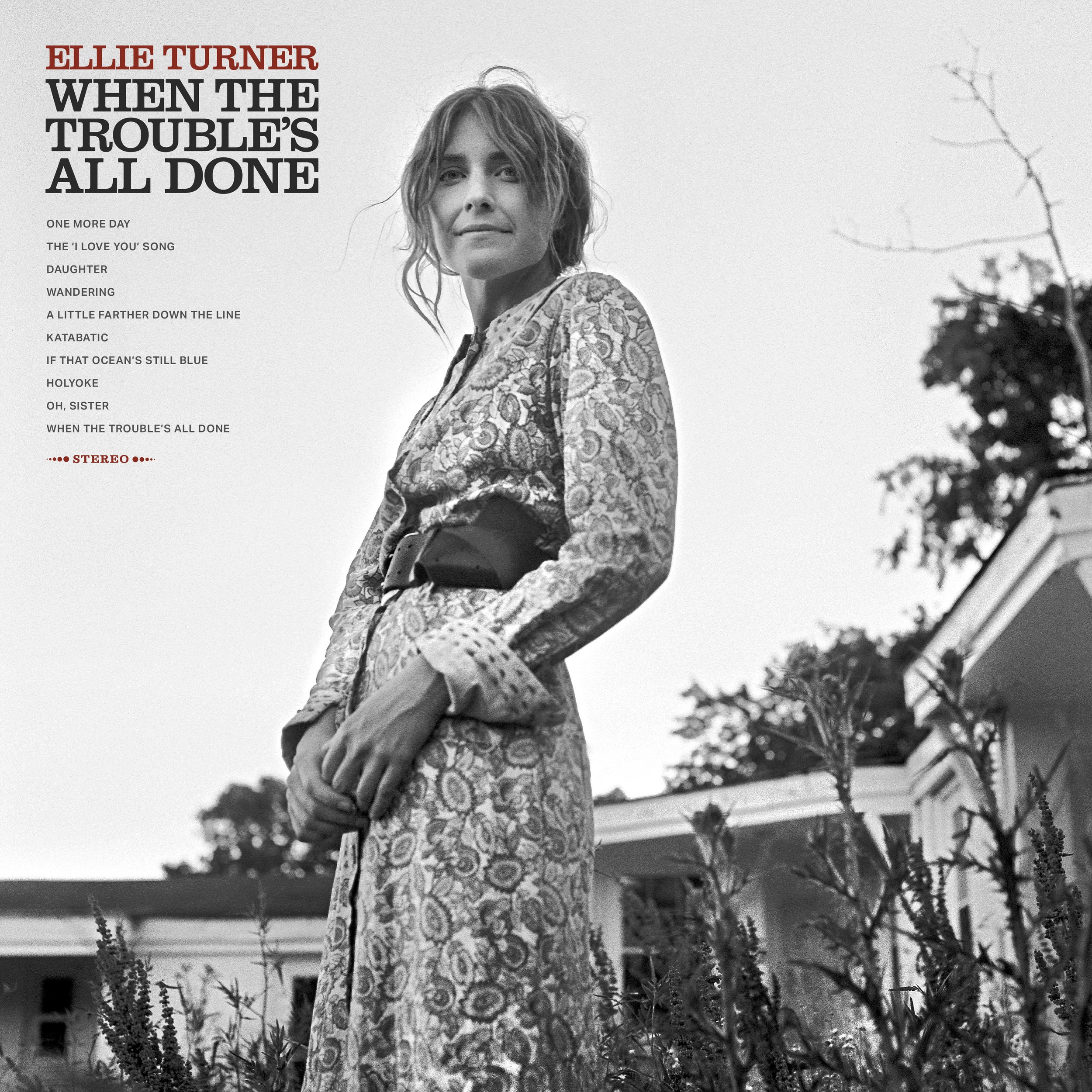

"I heard Ellie Turner sing live and somehow her voice was demanding without ever thickening past egg shell. She's a velvet hammer, and the Country world might not be ready for her, but they damn sure better get that way."
- Andy Baxter of Penny & Sparrow
ABOUT ELLIE TURNER
Ellie Turner quietly captures moments out of time on her album When The Trouble’s All Done.
“I can’t tell you where I’m going / I can’t tell you where I’m bound”, sings Ellie Turner over a serene soundscape that seems to draw you into her world, “That train has come to carry me, a little farther down the line”. Turner’s first full-length album, When The Trouble’s All Done, uses stripped-down production and a commitment to capturing a singular performance to deliver unique moments, seemingly divorced from day-to-day life. While “Folk Music” has come to mean so many things over the past decades, Turner’s approach is both refreshing and vintage, evoking early Bob Dylan, and a tradition of bygone years, embracing beautiful imperfection.
Originally from Dallas, Texas, Turner has always been creative, although her passion was initially channeled into visual art and design. “I was all set to attend Savannah College of Art and Design”, she explains, “but a last-minute conviction of spirit led me elsewhere. I ended up at The University of Arkansas on a total whim where I studied Economics, and more importantly, where I fell in love with folk music.” In Arkansas, Turner discovered old-time music through a local fiddle jam and became enamored. “I was too afraid to actually participate at that point, I would just sit and observe in complete wonder. It filled me up like nothing else ever had. I couldn’t get enough… I think that was probably when I first started to understand the power folk music had to stop time.” This observation is readily apparent in Turner’s songs, which do seem to exist on their own metaphysical planes, as meditations of sorts.
The album’s title track is one such meditation, seemingly a mantra for hope. “And we will sing of the good years and wait on that sun / Cuz soon it’ll be here when the trouble’s all done”, croons Turner. “This is actually the first song I wrote for the album back before I even realized I was writing one, in April of 2020. I consider this song the wellspring of the record as a whole. It is a longing for what is to come. A hopeful declaration of belief that the morning will come to claim its turn.”, she explains.
Despite her brazen hopefulness, Turner’s own path has not been straightforward. After a few years working as an analyst for Southwest Airlines, she “finally mustered up the courage to leave my corporate gig for something more creative,” although she still didn’t pursue music.
It would take one more year and a brief stint at the interior design company The Citizenry before she finally gained the confidence to say yes to the thing she truly loved. “I was at breakfast with my Dad on a Saturday morning when I made the decision to quit my job, sell my house, and move to Nashville. It was July of 2018, I was 26 years old, and I felt so behind,” she says.
When The Trouble’s All Done, also explores more intimate themes of love and loss. On one of the standout tracks, “Holyoke”, Turner speaks from a moment of devastation with a loved one. “But I’m tangled up in moments of a soon forgotten past / in a bed of shattered memories of a love gone by too fast”, she sings with her signature soft yet piercing vocals, which feel like a secret told to a best friend. Even in heartbreak, Turner approaches everything with a zoomed-out view, in the context of deep time, and the knowledge that nothing is constant.
Through every element of her album’s creation, Turner has taken care to retain a specific presentation of her songs. Most of the tracks feature just acoustic guitars, upright bass, and vocals. “The album was performed and recorded live-to-tape at Sound Emporium Studios in Nashville, TN,” she says. “This was a very conscious decision made by myself and my producer, Jack Schneider. We would play the song live until we felt like the most honest version of the song had been performed and captured. The imperfections and unexpected little moments of each performance are where the magic of the record lives. I wanted it to feel as if I was in someone’s living room and was handed a guitar to play.”
In an era when it is possible to edit every note of a record into some semblance of “perfection”, Turner’s music moves and breathes, and reminds us where folk music comes from; the homes and souls of regular people, singing unedited songs for one another on quiet evenings.


